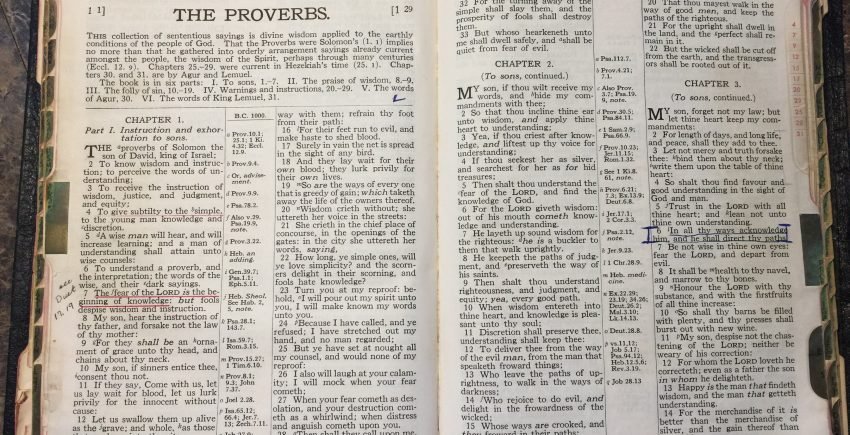
I can’t remember a time when I wasn’t hearing or reading the Bible. Even as a child, I received New Testaments and Bibles from time to time, but my first study Bible came when I was fourteen. My parents bought me a leather-bound Scofield Reference Bible for Christmas in 1966, with tabs for every book and for every chapter. I’ve studied God’s Word almost every day for last fifty years and taught from it almost every week for the last forty years. I wish I could memorize every single word of Scripture, and perhaps one day I can—in heaven.
My love for Scripture isn’t just an emotional attachment; it’s an intellectual commitment based on a line of reasoning that I view as linear and convincing.
- There is a Creator-God, which is a premise that can be demonstrated convincingly and cannot be successfully refuted.
- By the very nature of the definition of the term “God” we would surmise Him to have intelligence and love.
- If He is intelligent, He must be able to communication; and if He is loving, He must want to communicate to His creation.
- We would expect a communication from Him to be intelligent, objective, flawless, unerring, trustworthy, enduring, and capable of being studied and translated and shared with others. We would also expect it to be authoritative and invaluable to life.
If we were to follow this line of reasoning one more step, it stands to reason that whatever communication God would place in our hands would be unique, one-of-a-kind and distinct from all other human communication, in a class by itself.
That’s why we can take all the millions and millions of books that have been written from antiquity, from the days of cave paintings, through the ages, before and after the invention of the printing press, before and after the dawn of the technological revolution, and until now. We can the trillions of words that have ever been written and place them on one side of the scale; and we can take our simple Bible and place it on the other side of the scale – and thump! – The Holy Bible outweighs all the rest by billions of pounds, by an infinite measurement, by a measureless degree. It stands alone. It stands above all the rest.
Charles Haddon Spurgeon said in Lectures to My Students: “In the Bible we have a perfect library, and he who studies it thoroughly will be a better scholar than if he had devoured the Alexandrian Library entire.”
The Bible is unique in many ways, but its fundamental uniqueness is rooted in its authorship. Every word was written by a human being, yet every word was breathed out by God. This miracle of dual-authorship is what makes the Bible utterly unique.
- 2 Timothy 3:16 says, “All Scripture is God-breathed….”
- 2 Peter 1:20-21 says, “Above all, you must understand that no prophecy of Scripture came about by the prophet’s own interpretation of things. For prophecy never had its origin in the human will, but prophets, though human, spoke as they were carried along by the Holy Spirit.” The word for “carried” is the same word we find in Acts 27:15 and Acts 27:17, for a ship being driven by hurricane-force winds.
- 1 Thessalonians 2:13 says, “And we also thank God continually because, when you received the word of God, which you heard from us, you accepted it not as a human word, but as it actually is, the word of God, which is indeed at work in you who believe.” Many New Testament scholars believe 1 Thessalonians is the first New Testament book written (the other contenders are Galatians and James). Yet even here Paul claims the words he is writing represents the word of God, and he also says that it is now, at that moment, presently, actively working in the lives of its readers.
The dual authorship of Scripture gives it eternal authority yet puts it on our level, giving us a book that will guide our lives all our days. Here, then, is my understanding of the doctrine of Inspiration.
Inspiration is that process by which the Holy Spirit came upon certain individuals at certain times (without suspending their own personalities or intellects) and superintended their words, down to the syllables, rendering their original writings infallible, inerrant, and authoritative—the very words of God Himself.